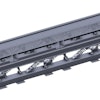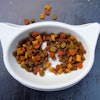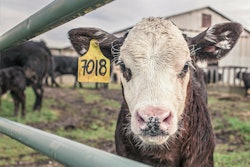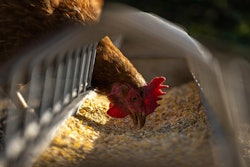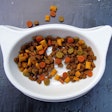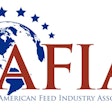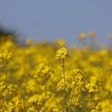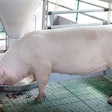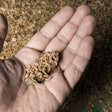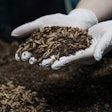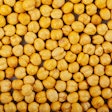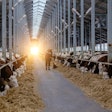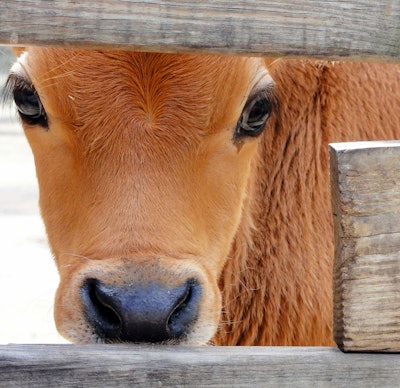
The feed phosphate market value is poised to gain an uptick on the heels of demand for boosting animal growth and development.
Considering the need for improved fertility and bone development is soaring, industry participants have furthered their investments in feed phosphate.
With the outbreaks in the U.S. becoming palpable, end-users have shown increased inclination toward animal health and quality of meat. Feed phosphates, for instance, are added to dairy products and meat to be consumed by animals, helping boost their overall wellbeing.
In terms of revenue, global feed phosphate market is forecast to grow at a considerable rate by 2026. Industry participants are likely to infuse funds in North America, Europe and Asia Pacific. What are some of the trends which are likely to remain instrumental in the feed phosphate landscape?
1. Leading companies vie investments in monocalcium phosphate in North America
Feed phosphate suppliers in North America are likely to emphasize product portfolio expansion focusing on monocalcium phosphate target market. It is worth noting that the product provides high palatability in livestock. Thefeed phosphate marketshare from monocalcium phosphate segment in North America is likely to expand at a moderate CAGR of 3.9% through 2026, partly attributed to soaring consumer awareness pertaining to animal health.
The trend for dicalcium phosphate will potentially remain pronounced in cattle industry. The phosphate is an essential source of phosphorous and calcium, thereby helping enhance immunity status, milk production and productive life in cattle. The dicalcium phosphate segment in North America was valued at more than USD 600 million in 2019 and will grow at a stable CAGR of 3.5% through 2026.
2. Demand for feed phosphate to in poultry livestock in America
Poultry livestock is likely to be one of the major consumers of feed phosphate across North America. Feed phosphate, such as monodicalcium phosphate (MCP) and dicalcium phosphate (DCP) are sought-after in poultry livestock.
The feed phosphate is setting the trend as a growth supplement to boost performance, laying capacity, efficiency and in preventing disease by improving the immune response. The feed phosphate market value from poultry livestock in North America is forecast to surpass USD $625 million by 2026.
The trend for feed phosphate for pets will further gain impetus in the next few years in the U.S., Canada and Mexico. Traction for tricalcium phosphate will remain pronounced in pet food for skeletal formation and impulse transmission. The market share from pet livestock in North America is likely to grow at a stable CAGR of around 2.7% through 2026.
3. Europe to witness traction for dicalcium phosphate
Dicalcium phosphate will boost the trend for feed phosphate in the U.K., France and Germany. Notably, the availability of dicalcium phosphate in hydrous and anhydrous forms has augured well for the industry size expansion.
The market value from dicalcium phosphate segment in Europe was pegged at more than USD 300 million in 2019 and will expand at a considerable rate in the next few years.
Exponential demand for feed phosphate in swine livestock will muster up the confidence among stakeholders. Booming swine population in Denmark and Germany has played an invaluable role in expanding the footprint offeed phosphate in the Europe.
The market value from the swine livestock segment is projected to log more than USD 160 million by 2026 in the region.
4. Germany to emerge as a potential growth market for suppliers
With the technological advancements in the meat processing industries in Germany becoming palpable, leading companies are vying to boost their presence in Europe. Prominently, the demand for meat has surged drastically, and so has the exports of German meat to Poland, Italy, the Netherlands and China.
Germany is likely to provide revenue-boosting opportunities and will continue to remain a growth potential market for feed phosphate.
Europe is likely to remain a hub for beef and bovine market, triggering the demand for feed phosphate. Stakeholders are buoyed by the presence of massive grasslands which has played an instrumental role in the rise in the number of cattle in the region.
5. Stakeholders seek portfolio expansion of monocalcium phosphate in India
印度对饲料磷酸盐仍将是一个利润丰厚的市场phate following the penetration of monocalcium phosphate in the region. Feed phosphate will remain instrumental in improving the quality of feed and for the optimization of its nutritional value.
With the demand for protein rich foods soaring, the inclusion of monocalcium phosphate to animal feed has become popular in APAC. India monocalcium phosphate market is likely to grow at a 4% CAGR through 2026.
Stakeholders are likely to infuse funds in Japan as tricalcium phosphate continues gains impetus in the region. The product will be highly sought-after for boosting intermediary metabolism, along with providing weight management and essential nutrients.
Japan tricalcium phosphate market size was pegged at more than USD 12.5 million in 2017 and will thrive in the ensuing period.
6. Poultry and aquaculture to witness investments in Asia
China is poised to witness traction forfeed phosphatefor poultry livestock owing to the consumption of meat in the mainland. China has witnessed an upsurge in GDP and rise in the consumption of beef and poultry products.
Robust demand for high quality meat products has triggered investments in the region. China feed phosphate market value from poultry is forecast to exceed USD 545 million by 2024.
Considering the rise in the demand for prawns, shrimp and tuna in Thailand, production of feed phosphate for aquaculture livestock is likely to surge in APAC. The phosphate will gain popularity for formulating feed ingredient and bolstering the skeleton. Thailand feed phosphate market share from aquaculture livestock may expand at a 4% CAGR up to 2024.
AboutGraphical Research
图形化研究是一个商业研究公司那t provides industry insights, market forecast and strategic inputs through granular research reports and advisory services.



